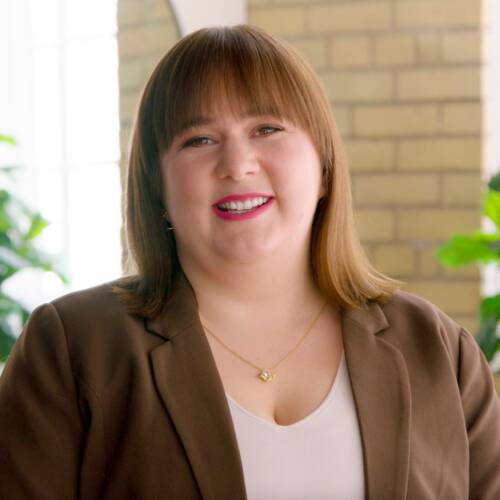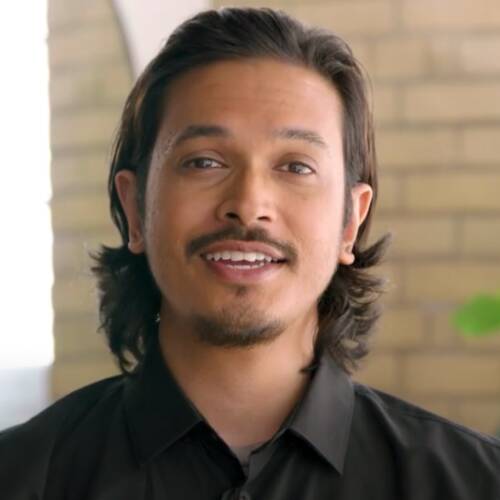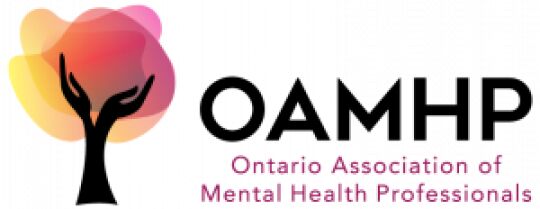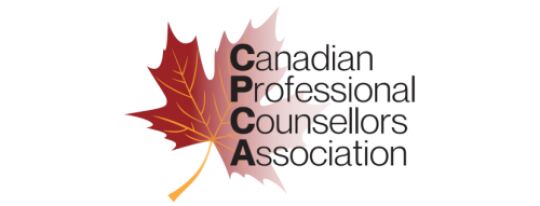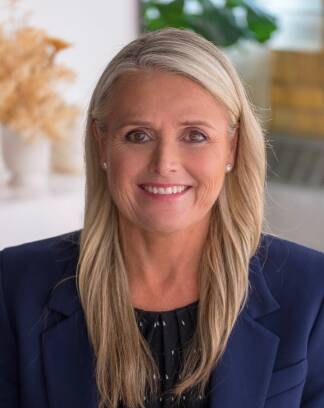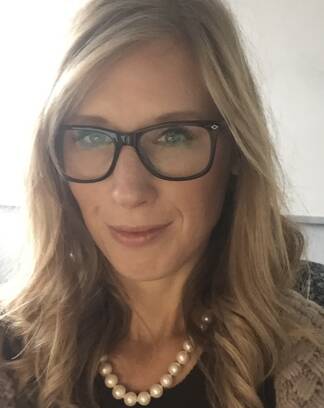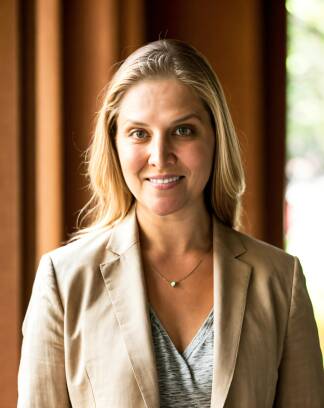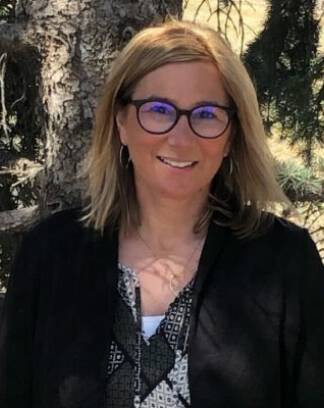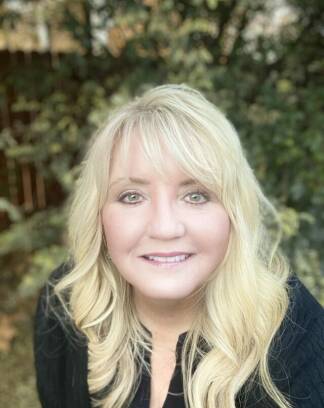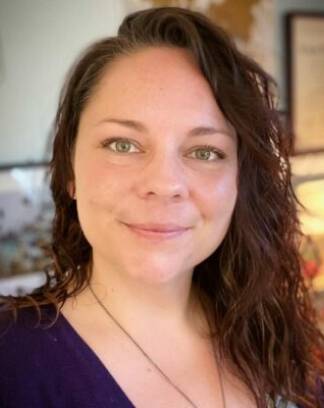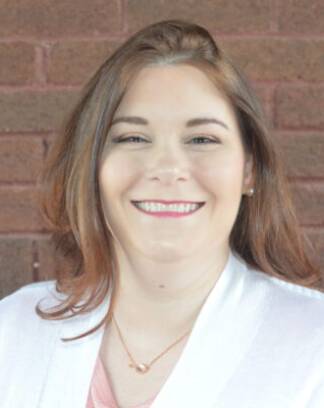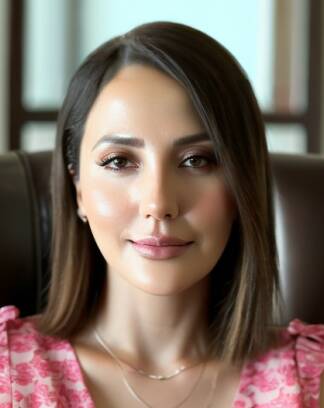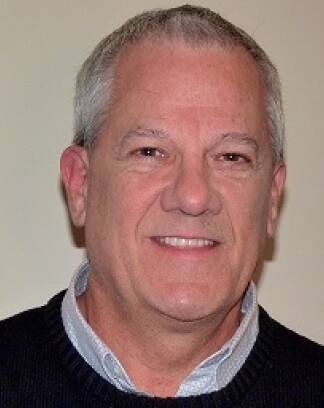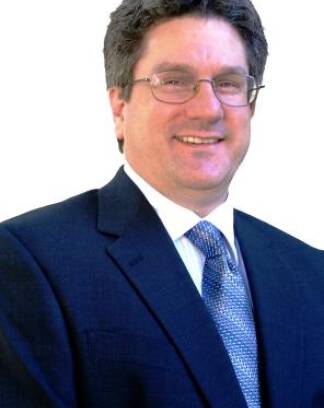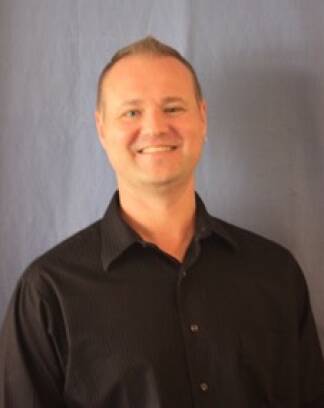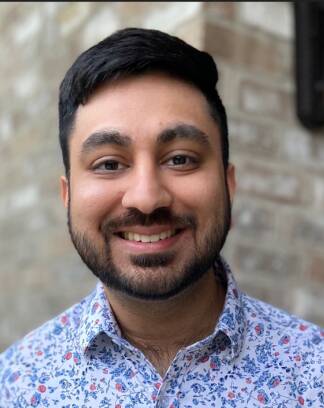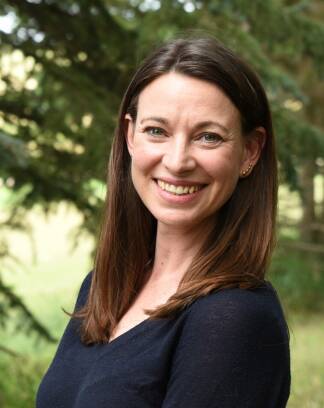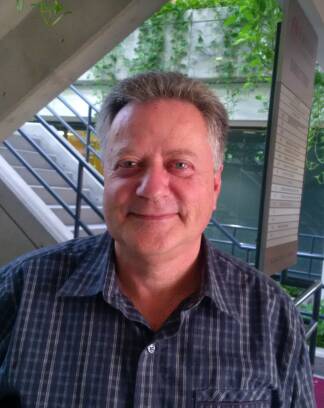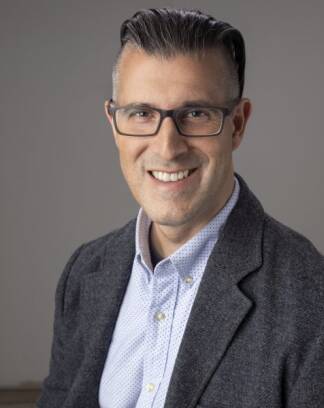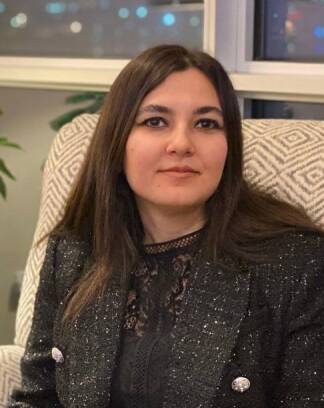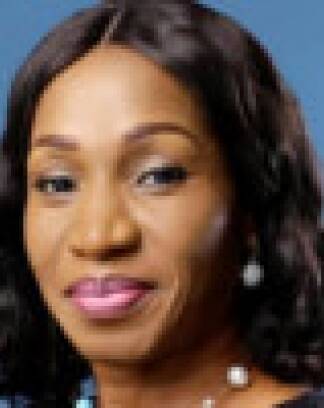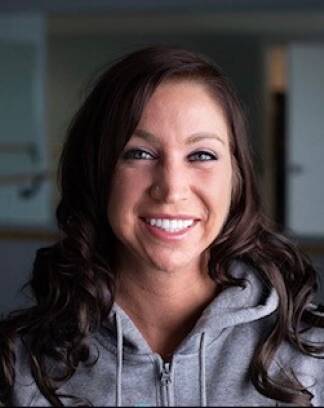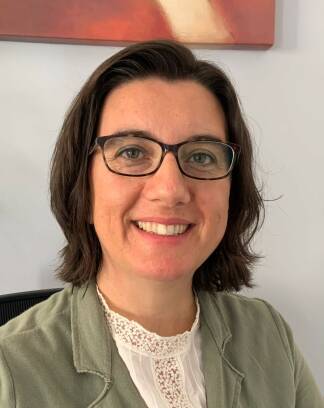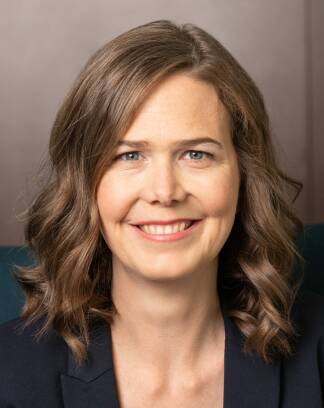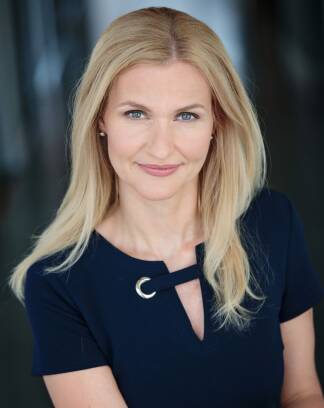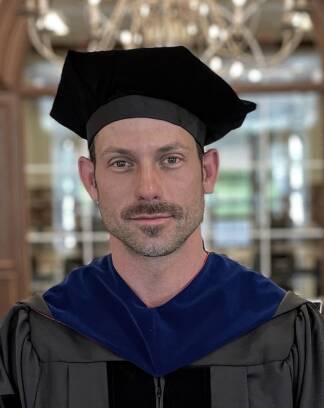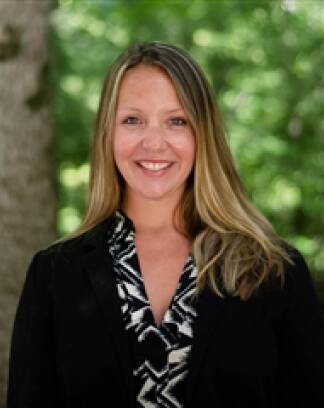
Master of Arts in Counselling Psychology (Online)
Canada’s Leading Online Counsellor Education Graduate Program
Embark on a transformative journey with Yorkville University’s Master of Arts in Counselling Psychology (MACP). This program provides an accredited pathway to licensure, allowing you to practice as a qualified counsellor in Canada.
Flexible Online Study – Tailored for those passionate about making a positive impact, our student-centric online program seamlessly integrates into your life.
Industry-Leading Curriculum – Explore diverse facets of counselling, including various counselling methodologies, crisis and trauma intervention, addiction counselling, and counselling in schools.
Comprehensive Practicum – At the core of our program is an extensive practicum, providing hands-on experience in group counselling and couples and family systems.

1st
Online counsellor education degree in Canada
16000
+
Strong student and alumni community
53
Weeks of skills practice
400
Hours of robust practicum
New Term Starts Soon
Starts:
January, May, September
Campus:
Online
Duration:
Under 2.5 years*
*With full course load, year-round study and/or approved transfer credits. Contact an Admissions Advisor for more information.
Program Benefits
MACP Program Recognitions
The Master of Arts in Counselling Psychology program is recognized by provincial and national associations and regulatory bodies, allowing our graduates to apply for registration or membership with a range of organizations, including the examples below. If your future career plans include becoming a registered mental health practitioner, it’s important to know that the requirements for certification, registration, or membership with provincial regulatory bodies and professional associations vary. For those aiming to become a registered Psychologist, Psychotherapist, or Counsellor, be aware that these professions are highly regulated, though the specific regulations differ by province and may change over time.

Practicum
Practicum is the cornerstone of skill development for every MACP student, providing a vital link between theoretical knowledge and real-world application.
Our 400-hour practicum is one of the most robust practicum courses in the country and equips you with hands-on counselling experience through direct, supervised contact with clients.
91% of our students agree that the practicum helped them gain clinical counselling competencies required to be successful at working with clients.
78% have discussed possible employment opportunities with their practicum site supervisors.
Career Outcomes
Graduates of the MACP program use their skills and knowledge to help people overcome psychological issues and transform their lives.
A variety of exciting and fulfilling outcomes are available to graduates of this program, including careers such as:
-
Counsellor
-
Therapist
-
Psychometrist
-
Consultant
-
Psychotherapist
-
Mental Health Service Provider
Where Our Graduates Work












Faculty
Meet the Dean

Dr. Tamara Dalrymple
Dean, Master of Arts in Counselling Psychology (MACP) program
Dr. Tamara Dalrymple joined Yorkville University in January 2023 as the Associate Dean of Field Training and has been overseeing the Master of Arts in Counselling Psychology (MACP) program since May 2024. She brings over 30 years of experience in clinical mental health, leadership, and post-secondary education.
Throughout her career, Dr. Dalrymple has held a variety of roles in clinical counselling and mental health, including School District Mental Health Counsellor, Community Mental Health Clinician, Team Lead for multidisciplinary mental health teams, Clinical Supervisor, Provincial Mental Health Consultant, Private Practice Clinician, Sessional Instructor, and various leadership positions in post-secondary counsellor education.
Dr. Dalrymple holds a Doctor of Psychology (PsyD) and a Master of Arts in Educational Leadership and Counselling. She is a member of the Canadian Psychological Association (CPA) and has been a Registered Clinical Counsellor for over 25 years. Additionally, Dr. Dalrymple is board-certified in EEG Neurofeedback (BCIA) and is an Approved Clinical Supervisor (ACS). She is committed to enhancing the student and faculty experience by fostering practices that align with Yorkville University’s Core Values and Signature Learning Outcomes.
MACP Leadership
MACP Course Leads
MACP Full-Time Faculty
Admission Requirements
To apply to our Master of Arts in Counselling Psychology program, you will have to complete the following steps:
- Create an account here and submit your online application form.
- Pay the $150 application fee
- Submit the following documents:
- Official undergraduate transcript and proof of obtainment of a bachelor’s degree
- Resume and statement of interest
- Two references from professional or academic sources (see form)
- Detailed course descriptions if applying for transfer credits
- Completed relevant work/volunteer experience attestation form if applicable (see form)
- For international students only: provide proof of English language proficiency (IELTS overall band score of 7.0 with no band below 6.5)
In addition, applicants are required to have a cumulative grade point average (CGPA) in undergraduate study of at least 3.0 on a 4.0 or 4.3 scale, or a GPA of at least 3.0 in the final 60 undergraduate credits taken. Applicants may be conditionally admitted with a GPA between 2.5 and 2.99 if strength of overall application is sufficient.
Yorkville University prides itself on attracting students to the MACP program from diverse backgrounds. Accordingly, we are pleased to accept applications from prospective students that meet the criteria in one of five admission pathways.
For detailed information about our admission requirements, pathways, and application process check the admissions page.
English Language Requirements
English is the primary language of instruction at Yorkville University.
Applicants who have obtained a bachelor’s or first professional degree in a language other than English are required to submit confirmation of an official test of ability to work and study in English:
Proof of obtaining a bachelor’s or first professional degree where English is the language of instruction.
Such tests include:
- Confirmation of a Canadian Academic English Language – Computer edition (CAEL-CE) with a score of at least 70 (No component proficiency score below 60).
- Confirmation of an official Test of English as a Foreign Language (TOEFL) score of 95 (Internet-based version).
- Confirmation of a Canadian Language Benchmark (CLB) overall score of 9 (No component score below 8).
- International English-Language Test System (IELTS) with an overall bandwidth of 7.0 (No band below 6.5)
- Confirmation of a Canadian Test of English for Scholars and Trainees (CanTest) with a minimum overall bandwidth of 4.5.
- Confirmation of a score on any other test of English language proficiency that equates to Level C1 or higher of the Common European Framework of Reference for Languages (CEFR).
- Confirmation of a score equivalent to these scores on another test of English language proficiency recognized by and acceptable to the University.
- Confirmation of a Duolingo minimum score of 130 (No subscore below 120).
- Confirmation of Pearson Test of English (PTE) Academic score of 65 (no skills area score below 55)
Canadian applicants who completed their qualifying master’s degree in French, but completed another post-secondary degree, certificate, or diploma or their secondary education in English, are exempted from the requirement to provide tested confirmation of English language proficiency.
The University reserves the right to refuse admission to any student whose proficiency of English is questionable and to ask any student whose written work is below acceptable standards to withdraw from the program.
Tuition and Fees
Course Descriptions
The rigorous curriculum of the Master of Arts in Counselling Psychology includes the following courses:
* Please note that in some courses, there are mandatory synchronous components offered through an online video platform that are scheduled by the instructors at the start of the course. While we strive to accommodate students’ schedules whenever possible, these particular courses may not offer flexibility in choosing or changing synchronous session times. We appreciate your understanding and adaptability with scheduling, as these synchronous components are designed to optimize the overall learning experience by facilitating real-time interaction with instructors and peers.
4 Credits (required)
This course introduces students to a biopsychosocial framework for counselling psychology that draws upon the physical, mental, and social health disciplines creating an interdisciplinary model from these three pillars. This model is illustrated through the examination of selected counselling issues, such as but not limited to anxiety, depression, attention deficit hyperactivity disorder and neurocognitive factors. The course also introduces the Culturally Responsive and Socially Just model which further expands this framework into deeper levels of social and cultural understanding. Students will examine and apply these two primary frameworks to the professional counselling arena and build understanding around the foundational framework of treatment through a Canadian context. The course considers the personal role of the counsellors’ identity; the treatment within a therapeutic relationship; case conceptualization; outcome evaluation; and prevention.
3 Credits (required)
This course provides students with an understanding of the concepts and principles involved in psychological assessment and the use of both standardized and non-standardized instruments. Students will learn the concepts involved in psychological assessment, educational testing, and evaluation. The course will also examine the effects of clinical assessment on clients. Counsellors must become knowledgeable users of assessment data in the clinical decision-making process. Students will develop their skills for selecting, administering, scoring, interpreting, and analyzing test data in a clinical setting. Also, they will familiarize themselves with psychometric instruments, their philosophical and statistical properties, and the pros and cons of various assessment approaches. The course will also address cultural diversity issues and teach students how to approach social and ethical issues in assessment.
- Pre-requisite: PSYC6246 Counselling Skills and Competencies required.
3 Credits (required)
Counselling Methodologies: Psychodynamic and Humanistic Modalities is a review of the most important contemporary psychodynamic and humanistic approaches of counselling and psychotherapy, focusing on: underlying philosophical assumptions, major concepts, views of personality, the therapeutic process, the counsellor’s role, typical interventions, and targeted outcomes. The current approaches to counselling and psychotherapy selected for this course will also be explored with respect to the relations between theorists and their theories, as well as between counsellors and their clients. Cross-cultural and gender-related aspects will be considered for each of the counselling schools under study. Students will endeavour to recognize the links between theory and practice, between constructs and applied techniques or interventions. Students will integrate the course material from: the textbook, supplementary articles, professor’s notes, and online class discussions. Students will also be encouraged to conduct their own further research on topics of interest, by accessing library resources and pertinent professional Internet sites. Students will examine the similarities and differences among approaches, and thus lay the foundation for the development of a personally meaningful approach to counselling.
3 Credits (required)
This course is a continuation of PSYC 6153, with an examination of some of the core theories and methods which influence and direct the practices of contemporary psychotherapy. Cognitive behavioural therapy, one of the most commonly utilized therapeutic models will be looked at in detail. Additionally, structured training exercises in basic interviewing/counselling skills will be presented. An overview of emerging evidence concerning factors common to all therapies will also be reviewed.
PSYC 6203 Ethical Standards for Mental Health Service Providers (3 credits)
(required by students expecting to practice in a location other than the province of Alberta)
Course content follows the code of ethics, standards of practice and models for engaging in ethical decision-making of regulatory and collegial professional associations in enhancing the quality of counselling services. Ethics focuses on applying ethical principles to clinical/counselling activities and other related professional responsibilities regarding ethical decisions, personal values and professional competence, informed consent and confidentiality, professional boundaries and services across diversity/cultures, treatment challenges and ethics for the 21st century. The course content will integrate theoretical knowledge and practical skills in addressing complex dilemmas in the counselling profession.
- Prerequisite(s): PSYC 6104 A Biopsychosocial Approach to Counselling and PSYC 6213 Research Methodology.
PSYP 6203 Professional Ethics for the Practice of Psychology (3 credits)
(required for students seeking to practice in the province of Alberta)
The course is designed for students to increase their knowledge of the ethical, legal, and professional standards essential to the practice of psychology in Canada. More specifically, students examine the current Canadian Code of Ethics for Psychologists as well as the current Standards of Practice as defined by the College of Alberta (CAP) and apply these to various ethical scenarios and dilemmas that arise in psychological practice. Course topics will include, but are not limited to, ethical issues that are consistent across psychological settings such as competency, informed consent, confidentiality, dual relationships, maintaining professional boundaries, appreciating diversity and ethical decision-making skills. Understanding of and adherence to professional regulations, as described in the College of Alberta Psychologists (CAP) Standards of Practice and associated guidelines and practice alerts, will be of central focus.
- Prerequisite(s): PSYC 6104 A Biopsychosocial Approach to Counselling and PSYC 6213 Research Methodology.
3 Credits (required)
This course provides students of counselling with the tools needed to critically review and evaluate scientific research and develop the basic elements of a research proposal. Students will explore the body of counselling research, critique selected studies, and develop elementary research design skills, thereby gaining a sound understanding of the scientific method and the ethical considerations bearing on the research process. Strong familiarity with the scientific method allows professionals to understand psychological research and integrate it with daily practice. The scientific method can best be learned by studying all aspects of scientific research, including basic design, implementation, interpretation of results, and the drawing of conclusions.
- Pre-requisite(s): PSYC 6104, A Biopsychosocial Approach to Counselling
3 Credits (required)
Groups are becoming increasingly popular in counselling interventions. Although this trend is partly driven by budget restrictions, the primary advantage of group counselling is that participants get the opportunity to learn from each other. Other benefits from group counselling include that groups can more closely resemble everyday circumstances, they help to build a sense of community and belonginess, they normalize “issues” as members find commonalities with others, and, especially in working through interpersonal challenges, they can be very therapeutic. This course will take a multimedia approach to introducing group counselling skills across diverse theoretical perspectives, ages and stages of development, and types of problems. A comprehensive textbook, bundled with a DVD, presents theory, practical applications, and numerous role-played examples of group facilitation skills. Journal articles, video clips from YouTube, interactive discussion forums, and assignments, focusing on group counselling for diverse ages, issues, and specific populations will all enhance students’ learning in this course. Students will be expected to actively participate in e- groups (asynchronous and/or synchronous) during this course and critically examine their own experiences both as group members and facilitators. Through the skills practice, students are expected to demonstrate awareness of group specific ethical concerns (e.g., limits to ensuring confidentiality) and enhance their basic group facilitation and group counselling competencies, including active listening, non-verbal communication, problem-solving, deepening focus, cutting off, drawing out, role-playing, closing, and the use of dyads and rounds.
- Prerequisite(s): PSYC 6153, Counselling Methodologies- Humanistic & Psychodynamic Modalities, PSYC 6163, Counselling Methodologies- Behavioural & Cognitive Modalities and PSYC 6246, Counselling Skills & Competencies
6 Credits (required)
This course provides students the opportunity to learn basic counselling skills and competencies essential to initiating and maintaining relationships with clients, regardless of specific theoretical orientation. Students engage in case conceptualization using one of four theoretical perspectives (Person-Centred Therapy; Cognitive-Behavioural Therapy; Structural Family Therapy; or Solution-Focused Therapy) and apply this theoretical approach in a counselling session with a client. By means of weekly structured practice assignments students learn how to identify and conduct competent counselling interviews. (Note: Students must earn at least 70% on each graded component of this course. Even if a student’s overall grade in the course is 70% or higher, if a grade on any component of the course is below 70%, s/he will be required to repeat the course.)
- Pre-requisite(s): PSYC 6153, Counselling Methodologies- Humanistic & Psychodynamic Modalities and PSYC 6163, Counselling Methodologies- Behavioural & Cognitive Modalites
6 Credits (10 weeks)
Using both humanistic and cognitive-behavioural framework, this course provides practice in the planning and implementation of client change interventions in counselling and psychotherapy. Students work in a variety of simulated contexts to gain practice using a range of frequently used counselling interventions that have demonstrated clinical efficacy.
- Pre-requisites: PSYC 6203, Ethical Standards for Mental Health Service Providers and PSYC 6246, Counselling Skills and Competencies.
3 Credits (required)
This course is designed to provide the student with the skills and competencies necessary to effectively deal with the interpersonal and intrapersonal dynamics of intimate relationships and family systems. Family interaction and communication patterns, conflict resolution, the impact of children on relationships, and other factors that influence family systems will be introduced. Ethical considerations regarding intimate partner violence/domestic abuse will be considered. The two major written assignments will focus in depth on one or more of the theoretical family systems frameworks covered in this course.
- Prerequisite(s): PSYC 6223, Group Counselling
3 Credits (required)
The cultural differences among people must be taken into account when structuring counselling interventions. Identity formation, worldview, communication style, and acculturation will be studied from the perspective of the significant cultural minorities found in Canada. Multicultural competence does not just guide interventions, it permeates all interpersonal dynamics among individuals of different gender, age, sexual orientation, race, cultural membership, able-bodied status, etc. This course is designed to enhance students’ understanding of the role of personal, ethnic, social, and cultural factors in multicultural counselling and mental health service delivery. Multicultural competence does not just guide interventions, it permeates all interpersonal dynamics among individuals of different, gender, age, sexual orientation, race, cultural membership, able-bodied status, etc.
3 Credits (elective)
Psychopathology is the study of disturbed functioning in the areas of cognition, emotion, and behaviour. It is composed of five aspects: definition of the disorder with regards to symptoms (diagnosis), description of the typical course of the disorder (prognosis), identification of the incidence of the disorder (epidemiology), understanding the origin of the disorder (etiology), and identifying appropriate treatments for the disorder. This course will focus on the major adult mental disorders. In the context of these disorders, the diathesis-stress model of etiology will be an important focus. Diathesis-stress is a dimensional approach that locates psychopathology at an extreme region on a dimension ranging from psychological health to severe illness. In the context of this model, recent developments in the fields of emotion science and emotion regulation will be emphasized as insights from these areas have major implications for the clinical work of counsellors, even where the degree of distress does not reach that of a specific disorder. It is important to note that counsellors are not permitted to diagnose in most jurisdictions. However, a basic understanding of the major categories of disorders is essential to providing counselling and therapy as well as for treatment planning, interpretation of referrals, participation in discussions with other mental health professions, and in making referrals where appropriate.
3 Credits (elective)
This course provides an introduction to the assessment and treatment of addictions. Emphasis will be placed on examining the various methods, strategies, and techniques used to assess addictions, as well as other problem areas that may co-exist or underlie addictions. Emphasis will also be placed on examining the various psychotherapeutic modalities and approaches, as well as the various treatment setting options.
3 Credits (elective)
The presence of school guidance counsellors is being increasingly recognized by school boards as an integral component of the personal, social, educational, and career development of students. Promoting healthy relationships, addressing social problems, and facilitating career choices within a multicultural environment are central to a comprehensive guidance program. This course is designed to help students identify and prepare for the multiple roles of a school guidance counsellor in meeting the needs of a diverse population. Issues such as bullying, violence, and substance abuse will be examined as well as the roles of parents, administration, educators, and community members in the context of the school environment.
3 Credits (elective)
This course is designed to provide graduate students in the counselling psychology program with both a theoretical and practical understanding of issues surrounding trauma and a basic introduction into accepted approaches to working with clients who have experienced trauma in their lives. Using current available research literature, this course will introduce students to the definition and types of trauma, critical incident stress management/debriefing (CISM/CISD), client resourcing and stabilization (ethical considerations), theoretical frameworks, assessments/diagnosis, effective treatments/interventions, prevention, and therapist self-care (vicarious trauma). Assisting students in understanding what trauma looks like and introducing them to different approaches where they can get further training, will better equip them to recognize their own limits and help clients. This course will help them navigate the vast amount of information on the treatment of trauma, so that they can make informed ethically-sound decisions when working with clients commensurate with understanding.
3 Credits (required)
This course is designed to support students during their practicum placement and enrich their learning experience. It also provides an opportunity to more formally evaluate students’ counselling competencies, ensuring that graduation from the MACP program signifies readiness to work effectively as a counsellor. There will be a focus on integrating theory with practice, resolving ethical dilemmas, case conceptualization and planning, developing cultural competency, embracing diversity, working collaboratively across disciplines, accessing and maximizing the benefits of site supervision, and developing a professional identity as a counsellor. Topics and resources will be closely connected to those previously introduced throughout the program to provide opportunities to synthesize and apply students’ learning – this spiral approach will facilitate a deeper level of experiential learning and retention. (Note: Students must earn at least 70% on each graded component of this course. Even if a student’s overall grade in the course is 70% or higher, if a grade on any component of the course is below 70%, s/he will be required to repeat the course.
- Prerequisite(s): All courses
3 Credits (required)
This course is a continuation of PSYC 7113 Practicum I.

MACP Mentoring Program
Our annual mentoring program offers a small cohort of current MACP students the invaluable opportunity to connect with community professionals and alumni. Through informational meetings, our students discover post-graduation career options, understand the steps involved in starting or advancing careers, and develop the confidence and skills to network with established colleagues in the field. Applications open annually every February to current students, where up to 50 students will be paired with an amazing Mentor from our volunteer community professionals and alumni pool.
94% Would recommend this program to a friend
83% Rated the meetings ‘extremely useful’
79% Noted ‘positive, tangible’ outcomes (e.g. job leads and introductions)
Testimonials
FAQ
The online master’s degree program, which is designed to be completed in 28 months, helps you gain professional designation requirements and advance your career in counselling, psychotherapy, education or social work.
Students develop invaluable professional experience and networking opportunities with experienced faculty and peers, including opportunities for role-playing and a practicum placement.
If you are looking to make a difference in people’s lives, the rigorous program can be fulfilling personally and professionally.
Yes. The program was specifically designed for working professionals. Approximately 80 percent of our students work full time while completing their degree. However, a reduction in working hours may be required during the practicum portion of the program, which is not online.
Students can expect to dedicate approximately 25 to 30 hours per week to successfully complete the requirements for each academic course.
No. Yorkville University provides multiple pathways for admission to the MACP program. To learn more about our admissions pathways and whether you currently meet the criteria to apply, please complete this form and an admissions advisor will be happy to assist.
For the Master of Arts in Counselling Psychology program, there are three terms per year: Fall (beginning in September), Winter (beginning in January), and Spring (beginning in May). Each term is 15 weeks long and courses are either five weeks long or ten weeks long.
Courses are taken sequentially and not concurrently, although the latter may be possible with special permission. A term would consist of either one ten-week course and a five-week course or three five-week courses.
There is a two-to-three-week break in between terms. However, within a term, there are no breaks between courses.
The rigorous practicum consists of approximately 13 hours per week for 30 weeks. The practicum is normally completed over two 15-week terms. In total, the practicum involves 400 hours of counselling experience in a professional counselling setting, including 200 hours of direct, supervised contact with clients.
After completing 12 academic courses with a minimum cumulative grade point average of B (3.0), students are eligible to begin their practicum. Students are responsible for finding a suitable practicum site, although Yorkville University’s Faculty of Behavioural Sciences is available to assist. Practicum settings and eligible on-site supervisors must be approved by the Faculty of Behavioural Sciences prior to commencement of the practicum.
The practicum experience takes place within the context of a course (PSYC 7113 and PSYC 7203) led by a member of the faculty. Students complete a number of self-directed learning modules related to the practice of counselling psychology, participate in 12 live seminars, engage in individual supervision with a faculty supervisor, and prepare a multi-staged case analysis.
Students are responsible for finding a suitable practicum site, although Yorkville University’s Faculty of Behavioural Sciences is available to assist. Practicum settings and eligible on-site supervisors must be approved by the Faculty of Behavioural Sciences prior to commencement of the practicum.
Please contact an Admisions Advisor for more information.
Most students in the Master of Arts in Counselling Psychology program are aged 25 to 44 years old and are working professionals with significant experience in counselling or counselling-related work or studies. All students are passionate about making a difference in people’s lives.
Yes. Yorkville University has been approved to offer the Master of Arts in Counselling Psychology degree by the Government of New Brunswick.
For more information on the minimum English language requirements, please refer to section titled, “English Language Proficiency” here.
Yorkville University is committed to helping you evaluate different financial aid options and payment schedules. Please click here for more information.
Only domestic students can apply to Canadian provincial student loan programs such as the Ontario Student Assistance Program (OSAP), or New Brunswick Student Loans (NBSL).
Yorkville University is committed to helping you evaluate different financial aid options and payment schedules. Please contact an Admissions Advisor for more information.
If you can’t find your questions addressed on this web page, please contact an Admissions Advisor.







